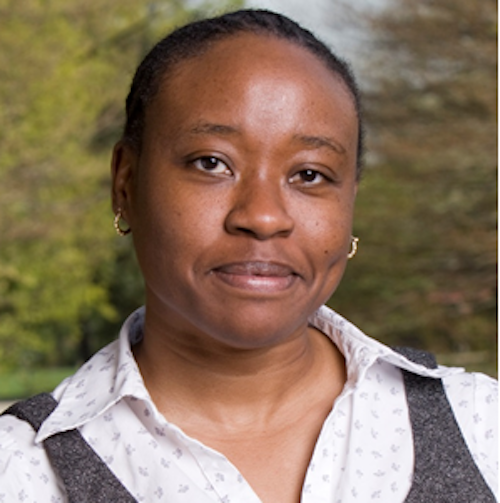
Iruka N Okeke
Country (Nationality)
Nigeria
Grantee Title
Project - Anti-adhesins with therapeutic potential for enteroaggregative Escherichia coli diarrhoea.
Grantee Description
Iruka N Okeke is a Professor of Pharmaceutical Microbiology at the University of Ibadan, Nigeria. She received B. Pharm, M.Sc. and Ph.D. degrees from Obafemi Awolowo University (formerly University of Ife), Nigeria and underwent postdoctoral training at Uppsala Universitet, Sweden and the University of Maryland Medical School.
Okeke’s lab studies bacterial colonization and antimicrobial resistance. Their research is focused on the molecular epidemiology of enteric pathogens, the molecular mechanisms by which bacteria adhere as well as molecular dissection and genomic surveillance of antimicrobial resistance. The group recently launched a drug discovery project to identify small molecules with antibacterial and antivirulence activity against neglected bacterial pathogens.
Iruka is a fellow of the Nigerian and the African Academies of Science. She teaches and is extensively published in the fields of microbiology, genetics and science and technology studies. Iruka is the Editor-in-Chief of the African Journal of Laboratory Medicine. She is a member of Nigeria’s Technical Working Group on Antimicrobial Resistance and advises other organizations on drug resistance.
Project - Anti-adhesins with therapeutic potential for enteroaggregative Escherichia coli diarrhoea.
The relatively unknown and understudied enteric pathogen enteroaggregative Escherichia coli (EAEC) is an important cause of infantile diarrhoea in Nigeria, other African countries, and elsewhere in the world. EAEC are exceptional colonizers that form copious biofilms and can contribute to nutritional deficiency even when they do not cause overt diarrhoea. Iruka N Okeke’s lab studies EAEC colonization and is academic home to pharmaceutical chemistry doctoral student David A. Kwasi. With chemists Chinedum P. Babalola, Uzochukwu Ikemefuna and OlujIde Olubiyi, Iruka and David aim to discover molecular scaffolds that could be forerunners of EAEC therapeutics. Following a small molecule library screen, the team is evaluating hits, determining their mechanisms of action and their potential to be progressed as drug candidates. The group will also apply their anti-biofilm screen to other small libraries with a view to increasing the repertoire of promising leads against EAEC and other neglected enteric pathogens.
